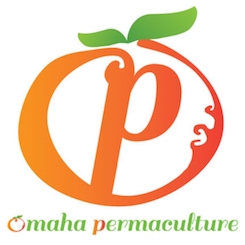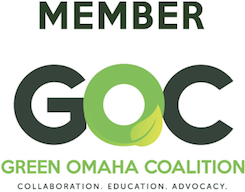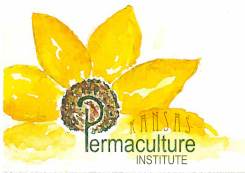August 30 to September 3, 2018, I attended the second Indigenous Wisdom and Permaculture Skills Convergence (IWPSC) at the Oglala Lakota Cultural & Economic Revitalization Initiative (OLCERI) on the Pine Ridge reservation in South Dakota. It was a very eye- and heart-opening experience, and it's taken a while for me to wrap my head around it. Here are my notes from the sessions, with some commentary.
I arrived on Wednesday evening to find many people who had arrived on Monday, the previous Friday, or even earlier to help get the site ready and receive a discount on their registration. (People like myself who paid full price were not required to volunteer, as we were subsidizing the volunteers' registration.) In addition to those who were there when I arrived, there was another van-full who had gone to one of OLCERI's other sites (that is, the home of another board member) for the day. They returned around dinnertime, which was after sunset, and we went to bed soon after. We tent-camped in a pasture for rescued horses, who wandered through occasionally, so it was important to watch where we stepped!
The OLCERI facility currently consists of Brian Deans's house and a variety of privately owned structures; a semi-enclosed kitchen, a "walipini" sunken greenouse, a semi-enclosed shower hut, a canopied gathering circle, a fire circle, a large garden, and several pit toilets. I'm probably leaving some stuff out, but I spent most of my time in the meeting area, kitchen, and campground.
Thursday breakfast was fry bread, sweet and savory oatmeal, and apple butter made from local apples. Most of the food was donated by other nonprofit organizations or government-issued staples.
We began with introductions, which took almost two hours because there were over 100 people. Most had either attended the previous convergence in 2016 or had heard about it from someone who had attended. I was surprised by how far people had traveled; there were two women from Brazil and two from Europe, one of whom had come to the reservation for a different event that was cancelled and decided to stay for the convergence instead. A young woman named Suzie had flown into Denver and ridden on horseback to the reservation two weeks in advance. Another woman, Michelle, had heard about the convergence in Oklahoma City but needed a ride, so she asked around and met Maya, who borrowed his girlfriend's scooter, and Michelle rode behind Maya on the scooter all the way from Oklahoma. Shabasa had been raising hogs organically on two rented farms outside Denver, but one was poisoned by fracking and the other got sabotaged by a crooked cop, so now he's in catering.
There was a couple of filmmakers from Canada, who were asked by the elders not to film or photograph "the staff," which I initially took to mean the ranch's employees, but I later learned was a ceremonial staff rather like a hobby horse wrapped in cloths which had been enshrined in the garden with a flame that was tended nonstop for the duration of the event. We had a volunteer session before lunch.
A pattern became clear early on and lasted all week, that events did not happen on schedule. Opening circle was announced for before lunch, then pushed to after lunch, then after the site tour. Some scheduled events did not happen at all because other things came up. We had been prepared for some cultural differences in documents that were distributed before the event, so we all just sort of rolled with it.
After lunch there was a tour of the nascent "food forest" planted on the site. Since Brian (the owner of the property) works off-site and is not a gardener, the plants were chosen for low maintenance: sand cherry, honey locust, and some hardy varieties of apple. A windbreak of ponderosa pine has not yet been planted. The soil is alkaline and very dry and silty -- it reminded me of the inside of a vacuum cleaner bag! When it rains it pours, so swales were built about 2 feet high. The heavy foot traffic during events a few times a year damages the swales and the groundcover, so they have to be rebuilt & replanted after events.
Opening circle
Opening circle began with a recitation of some Sufi poetry (Hafiz & Galib) by one of the volunteers, and then we got some backstory about how the event originated. Koreen and Brian started working together to create a sort of anti-Burning-Man, to create durable, sustainable structures. "Better to take a wobbly step forward than do nothing at all."
At this point one of the elders, Christinia, took unspecified female attendees to task for not honoring the Lakota tradition of staying in the red tent for the duration of their "moon time" (periods). We had all agreed to honor Lakota traditions before we came, and staying in the tent during one's period was part of the deal. To not comply with this tradition because we felt we knew better was white supremacy, and that was not OK. I had noticed signs in the pit toilets saying not to put feminine hygiene products down them -- ask instead at the first aid hut for a "moon bag" -- and I thought that odd if menstruating women were confined to a tent, but I didn't know the full story and probably still don't, but more developed later.
Brian said that the Lakota are matriarchal, and as a rule men do not weigh in on women's matters but back them up. He listed the 7 tenets of the Lakota worldview as food, water, shelter, fire, spirit, self, and earth. They have never had money but were rich in culture until the capitalist system convinced them they were poor. The Dakota Access Pipeline and corporate strongarm tactics are now showing all Americans what it's like to be Indians.
Koreen gave a brief introduction to permaculture and drew parallels between the "7 petals of the permaculture flower" and the 7 tenets of the Lakota: Land & nature stewardship; built environment; appropriate technology; culture & education; health & spiritual wellness; finance & economics; and community & land tenure / access.
Brian said that the Lakota Way says that we are all related. The symbol of the Lakota was originally a two-legged spiral, which has become the four-colored medicine wheel. The leadership model was servant leadership, not a hierarchical structure; leaders were often the poorest in the tribe because they were so often asked for help. 7 tenets, 7 generations, 300 years. People are meant to be caretakers but haven't done a good job. Money is a way to collect souls: when money doesn't flow, it gets stagnant and makes people sick.
Nathaniel spoke about his people, the Dinéh, the cliff-dweller clan. He didn't know he was poor until someone told him. He studied permaculture, then the elders told him they already had that knowledge. The Dinéh version of the medicine wheel is still spiral and looks kind of like a swastika, representing the big dipper at each of the four seasons. The upper, white quadrant represents thought; the right quadrant is planning, the bottom is doing or living, and the left quadrant represents reflection and learning.
Maya said he runs a camp in Oklahoma with a sustainability focus. He planted a 3-sisters guild with 1500 Anasazi seeds.
Doug said to avoid processed foods. Don't just hear with your mind, listen with your heart. The new way of life is the old way.
Michael Salazar said he grew up as a "wild Indian," told that his very presence was offensive, so he lived up to that reputation. His brother was killed at the age of 19. We all think we're good people; what about our potential? At first contact in 1492, there were only 500 million people on Earth. What if 500 million did permaculture today? We can slough off the old patterns, but we need each other. We can only do it through actions; talk doesn't do it. We need to be solution oriented and not play victim.
Decolonization panel discussion
Brian: We can romanticize a better future, but we have to start where we are.
Ra: founder of Black Permaculture Network after IPCC Cuba.
Nathaniel: work for food sovereignty in Navajo nation was actively sabotaged by the US government. The greatest resource extraction in colonialism is people.
Felix: the Dinéh reservation is larger than Rhode Island has has 400K residents in one valley alone. The move to the reservation was only two generations ago.
Christinia: initially thought permaculture was just a repackaging of indigenous wisdom for white people, but she came around after seeing the loving and humble attitude of practitioners. She and her mother went to boarding school and assimilated. Her brother and sister could pass for white, but she couldn't.
Michael: colonized peoples are made to subsist on the worst leftovers. We all exist in an unbalanced socioeconomic experiment called America. You can't shake it off alone; we have to do it together. Giving everyone white privilege is not the answer because it's just a reflection of white supremacy.
Brian: Catholicism said, kill the Indian, save the man. This is not ancient history, it's just 3 generations ago... of whites. More like 7 generations of Lakota due to shorter life expectancy. The bison were exterminated to get Lakota onto the reservation. The men were disenfranchised and turned to alcoholism. Lakota women owned most everything. The money system exerts pressure every day. For-profit prisons make money off every Indian in jail.
Jillian: her native identity was nearly eradicated, except her grandfather. The IPCC in India had space to discuss decolonization.
Will: his Lakota name means Teacher of the Red Way. He's a teacher at the Pine Ridge high school, of the Lakota way of life. Colonization started with genocide and bison extermination. White people stopped it, but their plan turned to assimilation. Native language and culture were criminalized. Without matriarchal structure, Lakota men became idiots. The Fort Laramie treaty gave the Sioux a 5-state region. After the US stole this land, in 1980 the Supreme Court ruled it was unjust. But promises were broken before the ink was dry. The US government has lied to all races, not just Indians. He thought the first Great Black Father in Washington as pretty cool. It's long past time we had a female president. If Trump makes you feel disempowered, come find an Indian and get a hug, because now you know how they feel. He teaches students to identify with their ancestors, not with poverty. Women are protected not because they're weak but because they're sacred.
Patricia: pissed about the red tent because imposing Lakota culture on visitors is no better than imposing white culture on the Lakota; she was given a pass to speak even though it's her moon time. She's been repurposing her family's land as a learning ground for student farmers, but her mother is afraid of change. Dwelling on the past makes us stagnant. The Lakota weren't originally plains Indians but were forced out of Michigan by the Ojibwe.
Friday work day at Patricia's
15 of us signed up for this day trip, but 17 of us left without remembering to pick up our prepared sack lunches, so Patricia made lunch for all of us. The family land is transitioning to being a community farm for people struggling with mental health issues, of which there are many on the reservation. We helped build a nursery for tree saplings to wait for a better planting time.
It's notable that Devora was hired to drive a bus for just this day, but she was so intrigued by the event she decided to stay for the full three-day weekend.
Saturday sessions
Christinia: each of the nations were given responsibility for stewardship, as commemorated in the medicine wheel: black/west/water; red/north/earth; yellow/east/air; white/south/fire. If all nations adopt the technology of fire, then the elements are out of balance. All must come together to help heal.
Brian: The eco ranch is an expression of the 7 Lakota tenets, as well as a demonstration of permaculture. It's been 167 years since the Lakota made peace with the US government, but the government has pursued only extraction. We need practicable solutions for poor people.
Sunday sessions
As before, most scheduled sessions did not happen because unscheduled activities crowded them out. We had an economics workshop focusing on the use of Steemit.com blockchain-based social media. We continued work on the Indigenous Wisdom Center, rocket stove, and garden. Felix & Nate gave a demo of building a sunken bed for dry land gardening. One of the kitchen volunteers had her phone stolen the night before, likely by a farm hand who was visiting the campus, and a band of drummers from Wounded Knee performed a "blanket dance" to raise funds to replace her phone.
Monday closing
Reed did a recap of the permaculture principles and how the organizers had hoped to express them through the design of the event. Jillian said permaculture is not something that's "over there," it's the whole thing. She drew a yin/yang with "land" on one side and "social" on the other. She said she has visited 35 countries and never found a community further along than the one at this retreat.
We did a ceremonial planting of burr oak acorns that some attendees brought from their father's land in Minnesota. To the Lakota, burr oaks are deeply symbolic of their migration from Michigan, but they are hard to establish in SD. The thousands of acorns will get planted in various microclimates in the hope that some will take root.
- Log in to post comments





Comments